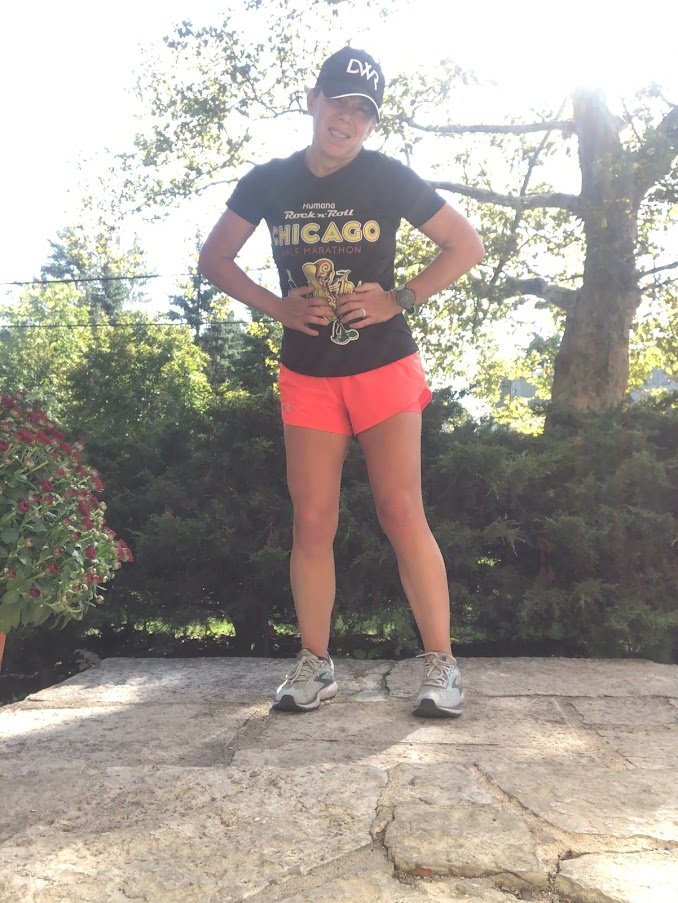Beat the Bloat : Why it Happens and What you Can do About it
Feeling bloated? You aren't alone. It's one of the most common complaints I receive from all types of clients. And it can lead to missed or uncomfortable workouts and much distress if it happens frequently. So what causes it? And how can you alleviate it (the sooner the better)? Let's dive in.
What Exactly is Bloating and What Causes It?
Bloating is when your belly or abdominal region feels full, tight and/or has the appearance of being swollen or distended. The most common culprits are ingesting excessive gas, gas building up in your stomach or too much fluid intake. While the sensation is temporary, it's definitely uncomfortable. Other common causes of bloating include:
Constipation
Gastroesophageal reflux disease (GERD)
Irritable bowel syndrome
Lactose intolerance and problems digesting other foods
Overeating
Menstrual cycle timing
Small bowel bacterial overgrowth
For endurance athletes, bloating can be caused by dehydration, eating too much (especially foods high in fat or fiber) before a run or workout, drinking too much before or during a run or workout, drinking the wrong types of fluids during a run or workout (e.g., something with carbonation or something too concentrated with carbohydrates), reduced blood flow to the gut during a run/workout, stress or anxiety related to the run or workout (especially on race day).
Most of the time, bloating is due to an accumulation of gas in the GI tract. This can be from a variety of reasons including diet (if you eat too many fiber-containing foods, drink a lot of carbonated beverages, chew a lot of gum, or if you have lactose intolerance and eat dairy foods), constipation (since you are unable to have a bowel movement, gas builds up in the intestines, contributing to bloating), eating too quickly (which can introduce gas into the stomach as you gulp down your food/beverages), or digestive diseases (e.g., Crohn's disease, ulcerative colitis, irritable bowel syndrome, etc.). Additional medical conditions, such as food allergies, gluten intolerance, certain infections, or even a bowel obstruction can also cause bloating. Lastly, there are certain medications that may have bloating as a side effect.
How to Alleviate Bloating
To relieve bloating, it’s best to try and identify and address the cause. Relief of bloating, and how quickly it happens, will also depend on the cause.
For excess gas accumulation, you may find reducing your consumption of the types of foods that contribute to bloating may help -- especially in and around planned workouts. This includes fibrous foods like broccoli, cauliflower, beans, oats, cabbage, as well as carbonated drinks and gum. You may also want to evaluate the rest of your diet and limit excess processed foods like those high in added sugars and fats and low in nutritional value. Avoid large meals and opt for smaller meals more frequently spread out throughout the day.
If you know you typically eat fast, slow down and take your time. Put your fork/spoon down between bites, stay mindful, try not to multitask while eating and consider smaller portions. This will help slow your eating which can impact the amount of air you swallow, reducing stomach bloat.
Incorporate more gut health promoting foods into your diet on a regular basis to help build or restore a healthy gut environment. This includes probiotic-containing and/or fermented foods like yogurt, kefir, tempeh, sauerkraut, kimchi, and/or kombucha. I encourage my clients to eat at least one probiotic or fermented food per day.
Take a short walk or include some light movement after eating. This can encourage gas to pass through your digestive system providing immediate relief vs. laying or sitting down which can contribute to gas build up and ultimately bloating.
If stress might be the culprit of your bloating woes, consider stress reduction techniques like meditation, journaling or deep breathing.
Some causes of bloating necessitate medical attention. If following a meal or snack that you’d consider of normal size you feel not just bloated but find that your stomach is uncomfortably distended, it’s a good idea to talk to your doctor. If in addition to bloating you also experience severe pain, nausea, vomiting or weight loss, you should see a doctor ASAP.
To learn more about bloating, check out this article I contributed to. Still have questions? Reach out to me today to arrange a FREE 30-minute discovery session to discuss further!

